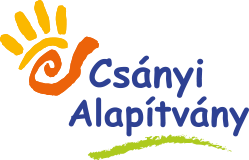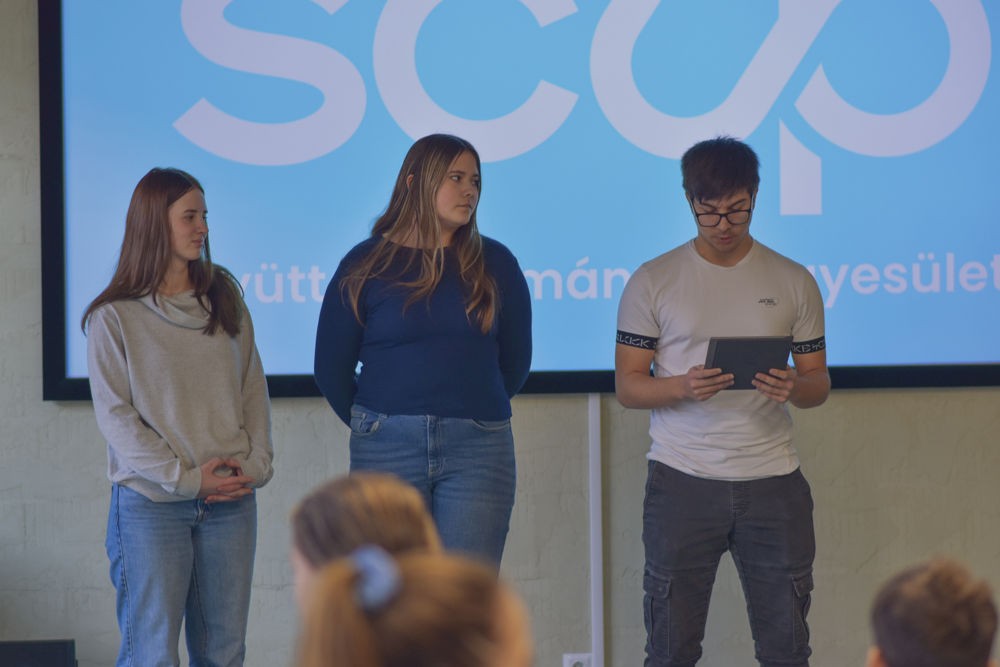
Scientific Stand-Up in Szeged
“On this chirpy morning, the members of the 2nd and 3rd groups from Szeged gathered at the Community Center at 9:00 am. After a brief breakfast, the eager team set off to the Keresztpont Community Space, where a science stand-up event awaited us.
Before diving into our short presentations, we kicked off with some warm-up exercises, demonstrating our ability to work together as a team. We learned that success comes from listening to each other’s ideas instead of finding excuses why they wouldn’t work. It’s about building on each other’s concepts to create something that everyone finds agreeable and beneficial.
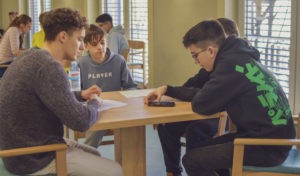
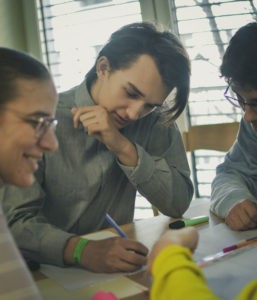
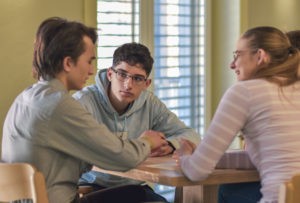
Following the warm-up, we were divided into random groups of three, each assigned a mentor who presented a scientific topic. Our task was to explain this topic in the simplest, most understandable, and creative way possible, ensuring even our grandmothers could grasp it.
My team tackled a fascinating subject: the Helicobacter pylori bacterium. This bacterium is responsible for the majority of chronic gastritis and peptic ulcers. Discovered by Barry Marshall (an Australian physician) and his colleague during an autopsy, they even went as far as to prove their findings by intentionally infecting themselves with the bacteria. Marshall eventually received the Nobel Prize in 2005 for this groundbreaking discovery.
After hours of work, each team had to present their project individually, in just two minutes, showcasing the extensive effort put into their research. From anti-cancer treatments to aphasia, we heard presentations on a wide range of topics. In the end, the judges rewarded three teams whose work they deemed understandable, clear, simple, creative, and scientifically accurate. The day ended on a highly successful note, and some of us are even planning to attend tomorrow’s stand-up event.”
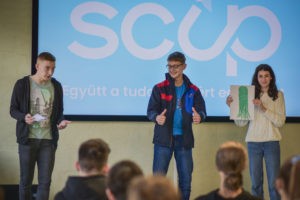
Ráchel Rebeka Juhász
“On Saturday, we had the opportunity to collaborate with the Scup team for the second time on a science communication project. Split into six smaller groups after a brief warm-up associative game, the members of both groups worked diligently until 2:30 pm. Each team had to simplify a scientific question brought by their Scup mentor so that even our grandmothers could understand it. At the end of the day, everyone had the chance to present their work. Some teams incorporated posters and theatrical elements into their presentations, which were then evaluated by a three-person jury.
We thank the Scup team for the experience!”
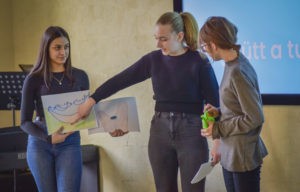
Anna Pajor-Vincze, Szeged 2nd group
For more photos, please visit the gallery
